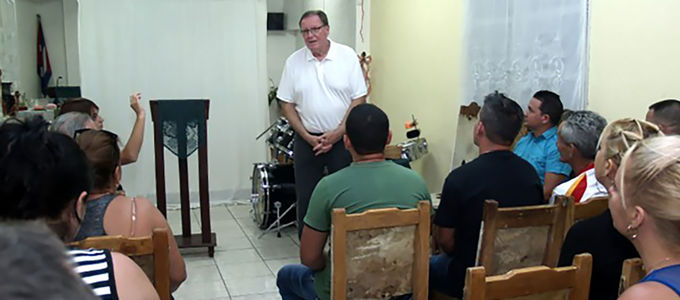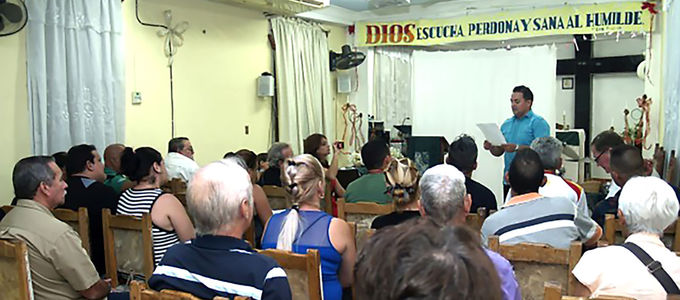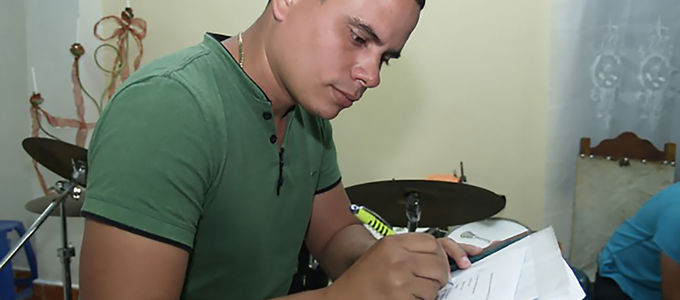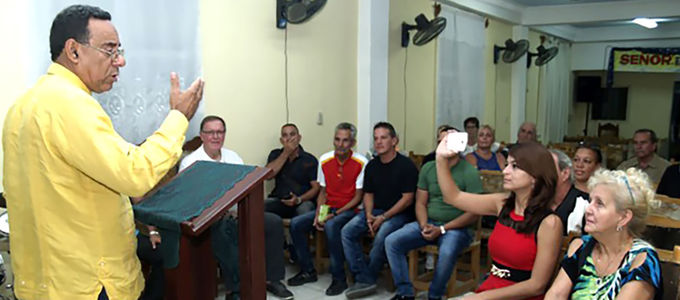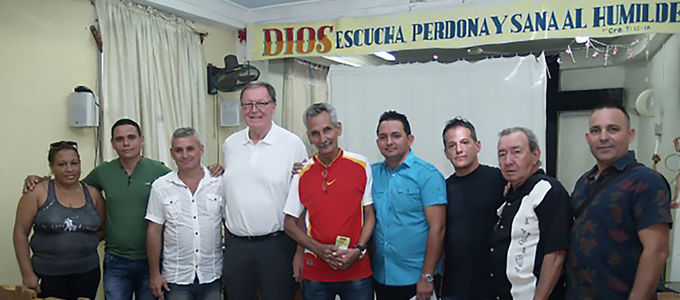
In Cuba, the road to formal recognition for a church is long. However, the first success on the long road to recognition of the New Apostolic Church has been achieved: it has been officially constituted.
“It was a big step for our Church there. Already now we can officially appear in public and, as an association, conduct any necessary business that a church needs to do. I am very happy,” District Apostle Markus Fehlbaum said, who is responsible for Cuba. For him, the constitution is an important step forward on the road to official recognition of the New Apostolic Church on the Caribbean island. He worked hard for it for many years. Never before have the conditions been better for this: the Church in Cuba received its own Bishop. District Apostle Fehlbaum ordained Alex Michel Reyes from Santiago de Cuba as a Bishop. Now the Cuban church has an official face and its own local Bishop.
The contact to other denominations has been very helpful. For the solemn ceremony marking the constitution, for example, Bishop Ismael Laborde Figueras, the spiritual leader of the Evangelical-Lutheran Church in Cuba, offered to act as patron. The constitution took place in the church at his official seat.
Official ceremony
For the Swiss District Apostle Fehlbaum, who has been travelling to Cuba for many years, this was a particular highlight. Ministers and members from all parts of the country came together for the ceremony. The constitution raises the New Apostolic Church to the rank of a legally recognised organisation. It now has the right to freely develop its religion. The forty members who attended the ceremony were thrilled that after more than thirty years of church work such a step has become possible in Cuba. Seven members were nominated and elected to the church council and introduced to their tasks.
Being New Apostolic will be easier
For many years, the New Apostolic Church led a secluded and quiet life on the Caribbean island. Without official recognition, divine services could only take place in the homes of members. It was not possible to attend a service in a publicly accessible building. This will change in future. In the meantime, applications for recognition of such house congregations have been made to the authorities. “The houses will then become a casa de culto, a house of worship,” District Apostle Fehlbaum says. The goal behind this is to make it possible for everyone to attend divine services freely and legally. “Once this has been approved, tourists to Cuba will also be able to attend divine services. For the time being, this is not yet possible.”
In the statutes, the Church declares in writing that, within the New Apostolic Church in Cuba, people come together who—inspired by the Holy Spirit and their love for God—align their lives to the gospel of Jesus Christ, and who comply with the directives of the New Apostolic Church International. Moreover, the Church expresses an interest in being granted observer status in the Council of Churches in Cuba, an ecumenical organisation, and declares its willingness and commitment to promote the ecumenical development in the country. These statutes must now still be assessed and approved by the government.
In association with other churches
On his last visit to Cuba in February, District Apostle Fehlbaum celebrated divine services, was able to seal members, and ordained a Bishop and two Deacons. He also led a meeting for ministers and their wives, and conducted a divine service for children. “There is great joy and excitement everywhere over the development of the New Apostolic Church in Cuba. We are grateful to our faithful God for the help He has given us so far!” he says, in summing up his travel report.






